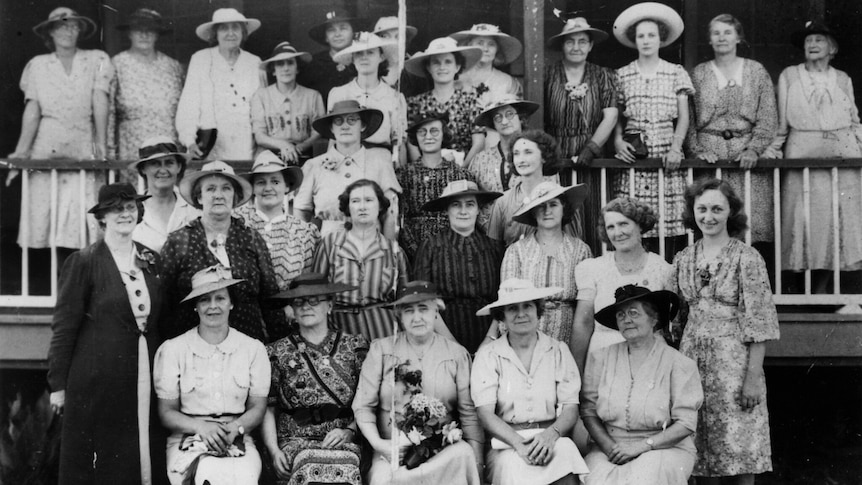Drive through any regional town in Queensland and you’ll be sure to find a Country Women’s Association hall.
They have been a home away from home for thousands of women across the farming state to meet for a cuppa and a chat while living in some of the most remote areas of the country, often on isolated stations or farms.
Now, 100 years on, members of the Country Women’s Association (CWA) across Queensland are celebrating the colossal impact of rural Australia’s largest advocacy group.
Working to attract young women
Traditionally renowned for their culinary prowess, the scones and cakes made by Queensland Country Women’s Association (QCWA) members have saved lives — raising millions of dollars for those struck by natural disasters and drought, women and children’s health, rural education, mental health, and disease.
Their long-established connections to communities and passion for coming together have seen armies of volunteers rally at the drop of a hat to effect change.
As events launch across the state to mark the group’s centenary this August 11, QCWA state president Sheila Campbell says the organization has come a long way from “just scones.”
She says while cooking and craft remain a big part of the QCWA, the organization is working to attract younger women to the association.
“We’ve seen new branches start up in city areas that we didn’t have before, so it has evolved,” Ms Campbell said.
“The misconception is that we are just scones. We are not just scones, we advocate, we make things happen.”
More recently, the work of the QCWA has involved making birthing kits for women in Papua New Guinea to create more hygienic labor environments.
The group also sends classroom supplies to schools in the South Pacific.
Since 1990, the QCWA has provided payments for Queensland women and families suffering from natural disasters or other crises.
In some of the more remote QCWA branches, members are using the centenary to reflect on the impact they have made in their communities during difficult times and the difference they have made in the lives of each other.
Cloncurry teacher and mother Tania Laffey didn’t know much about the QCWA when she joined.
Now it is an important part of her life.
“I really enjoy the atmosphere and the friendliness and casual side of it,” Ms Laffey said.
“As a mother, sometimes I needed to be somewhere other than at home.
“Especially in the wet season when you’ve been inside for days and you just want to get out to somewhere that is still clean, safe and dry… but it’s the friendships that keep me coming back.”
Throughout the years, the Country Women’s Association has remained a constant, working to stay relevant to the modern times, as well as honoring the century-old traditions of the institution.
“I’m not sure the CWA has changed much over the time, its a different era… but we still do the same things we did 100 years ago,” QCWA state president Sheila Campbell said.
“Admittedly we are in cars these days not horses, but it still appeals to rural women.”
Loading form…
.
